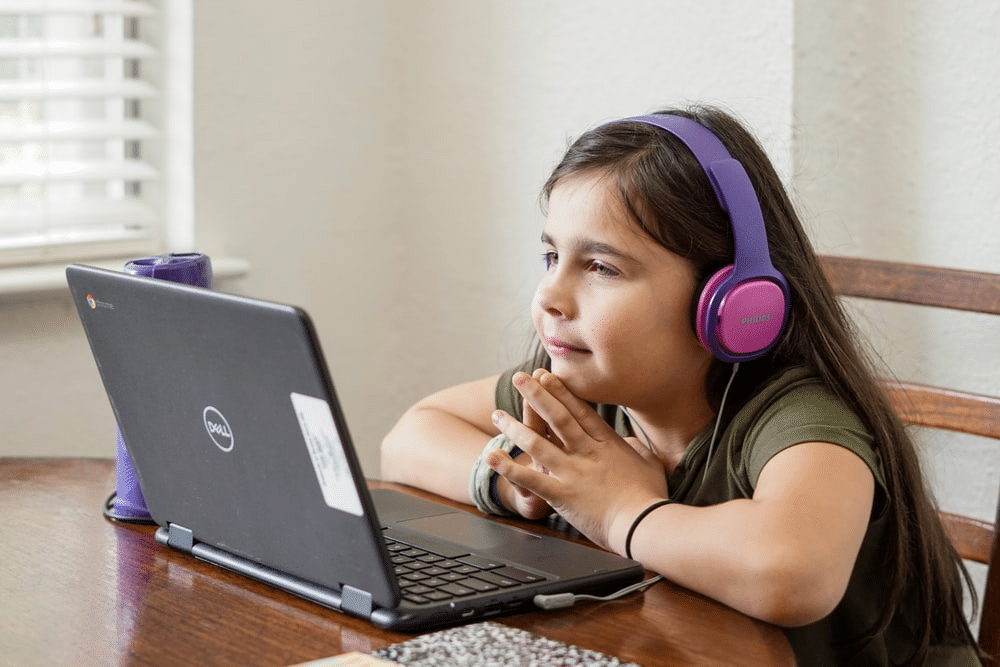
As we enter the second half of 2021, it’s safe to say that Virtual school online in UK is gradually becoming more common across the UK. While some parents are still sending their children to conventional schools, others are actively looking into the benefits of providing their children a quality online education from home.
Unsurprisingly, the list of benefits is extensive and appealing to both students and parents. Among these benefits, children’s safety, mental health, academic enrichment, personal growth, social development, and well-roundedness stand out.
If you’re considering making the switch from conventional schooling to online schooling for your child, make sure you start off on the right foot. We strongly encourage parents to do extensive research before they make a decision.
Lack of proper research may cause you to make an uninformed and erroneous decision that triggers regrets in the long run. In this blog, we’ll walk you through some of the most common online schooling mistakes you should avoid as a parent. Whether you’re still on the fence about online schooling or ready to make the switch, this guide will help you make a sound decision that benefits your child during their schooling years and professional life.
Mistake #1: Solely Relying on Recommendations From Friends and Family Members
With so many online schools to choose from, parents often feel confused and overwhelmed. Experiencing feelings of uncertainty and hesitation isn’t something out of the ordinary; it’s actually extremely common. More often than not, parents struggle with analysis paralysis as they attempt to shortlist different online institutions and finalise their decision.
As a parent, you may feel compelled to rely on recommendations from friends and family members. While taking their input into consideration is important, it’s not enough. If you exclusively act upon the insights provided by them, you could potentially end up making a decision that isn’t right for your child.
Avoid putting all your eggs in one basket. Instead, we recommend doing your own research. As you navigate the research process, you can start bouncing your ideas off of fellow parents.
However, begin the initial research process on your own. At Cambridge Home School, we provide a quality online British education to students in the UK, Europe (including Western Russia), Africa, the Middle East, and Central Asia. Our MA/PhD qualified subject specialist teachers are adept at helping students secure top grades and develop essential soft and hard skills.
By keeping the classroom size small (8 to 10 pupils per group) and developing an independent curriculum, we give our students the edge they need to perform well at school. Instead of taking our word for it, check out our online reviews. As you hear a diverse range of opinions from parents across the destinations mentioned above, you’ll be able to gauge whether you’re on the right track.
Mistake #2: Keeping Your Child Out of the Loop
Many parents make the mistake of enforcing online schooling upon their children instead of speaking with them beforehand. This is one of the biggest mistakes you can make as a parent who’s easing their child into online learning.
Students between the ages of 8 and 19 are in an active learning phase. As they discover their penchants, passions, and hobbies, they begin to come into their own. If you make the switch to online schooling on your child’s behalf, they’ll get little to no time to prepare for it. As a result, the adjustment phase may become more challenging.
It’s also possible that they’re apprehensive about online schooling. If this is the case, you can help your child gain more insight into the benefits of online learning. By having a conversation with them, you’ll help them realise that their opinion is valued. This will go a long way in helping your child feel more self-assured and validated. If they have any fears about online learning, start addressing them from the get-go. As you consistently keep your child in the loop, they’ll feel more excited about the switch. Approach the transition with a positive and an upbeat attitude so your child can follow suit.
Recommended Read: 3 Useful Soft Skills Students Develop Through Online Schooling
Mistake #3: Micromanaging Your Child’s Online Schooling Experience

While online schooling offers ample flexibility to students, it also gives parents the leeway to plan family trips or relocate. Instead of worrying about uprooting and replanting your child’s education in a different town, city, state, or country, you can help them resume their studies with ease. As long as you set up a quiet and distraction-free “study zone,” your children will be able to attend their online classes with no hiccups.
In other words, online classes can be easily taken wherever you go. Whether you’re travelling from the UK to Europe or the Middle East to Central Asia, you can set up a designated study zone for your child.
It’s important to note that greater flexibility comes with greater responsibility. As your child attends online classes, make sure you avoid micromanaging their schooling experience. As a parent, you may feel tempted to frequently check in with your child. While this is encouraged, make sure you avoid getting involved beyond that.
At Cambridge Home School, we provide parents 24/7 access to their child’s coursework. In addition, we hold three parent consultations per year—one in each term. These measures help us keep parents abreast of their child’s performance.
Additional parental involvement isn’t required. While you can assist your child before and after class, avoid micromanaging their classes in real-time. This can interrupt the flow of the class and affect the pace at which other students learn. If you’re working from home, you can complete your work obligations while your child attends their classes.
Our teachers expertly keep students engaged in the classes, so there’s no risk of your child losing focus or falling behind. If you’re worried that your child may not remain engrossed in the lessons, you can rest assured that our experienced teachers will keep your child on track through and through.
Mistake #4: Solely Focusing on Your Child’s Academic Growth

Switching to a reputable British online school is a great way to help your child secure A*s and As. As a parent, you should have a razor-sharp focus on improving your child’s academic performance. However, this shouldn’t be your only focus. We also recommend doubling down on your child’s personal growth and social development journey.
At Cambridge Home School, we help inculcate a wide range of soft and hard skills in students. Collectively, these skills help them become well-rounded individuals who are passionate about their studies, empathetic, collaborative, creative, honest, confident, and innovative.
Our students perform exceptionally well academically, personally, and socially. By encouraging each student to create a healthy and balanced schedule, we ensure that they have ample time for extracurricular activities. As a result, students can explore their interests and passions, take up new hobbies, brush up on old skills, and grow their skill set. These qualities help students get accepted to their dream university and eventually get their dream job. A healthy study-life balance created by an equal focus on academic and personal enrichment also improves their mental health.
Mistake #5: Repeatedly Switching Between Online Schooling and Conventional Schooling
In light of the COVID-19 pandemic, many parents are vacillating back and forth between online schooling and conventional schooling. They do this intentionally to help their child explore the two forms of learning and figure out which one they prefer. Unfortunately, this process can adversely affect your child’s schooling experience. As they’re continually shifted from one system to another, they may feel anxious, overwhelmed, and overburdened. Instead of adopting this experimental approach, we recommend having an open and honest conversation with your child instead.
By now, they have experienced both conventional learning and online learning. As a parent, you have also navigated these two facets of learning. You’ve observed how each style of schooling impacted your child, their academic growth, and their mental health. You’ve also developed a good grasp of how your work and daily routine changed during said phases.
Instead of probing deeper, make an informed decision based on the insights you have collected over the past year-and-a-half. If you continue to keep things in a state of limbo and switch between the two forms of schooling, your child’s academic performance will suffer. They’ll struggle to maintain consistency, learn and retain knowledge more effectively, and stay on track.
Online schooling undoes this damage by adding structure and cohesiveness to their regular schedule. Instead of reverting to conventional school, we recommend continuing to provide your child an online education. As you minimise and ultimately eliminate the back and forth between these two forms of schooling, your child will reap the benefits of studying in a safe, supportive, and enriching environment.
Recommended Read: How Long Does It Take Younger Students to Adjust to Online School?
Mistake # 6: Overlooking the Details
Taking out time to research your child’s schooling opportunities is imperative. As a parent, you can’t afford to overlook the details. We recommend carefully reviewing the following pages at Cambridge Home School:
- Admissions Process
- Term Dates
- Application Form
- Fee Structure
- Scholarships and Bursaries
By developing a good grasp of the basics, you’ll manage to proceed accordingly. In light of the pandemic, many parents are making the switch to online schooling rather hastily. Instead of rushing your decision, take your time. If you fail to pore over the details, your child’s schooling experience may be affected.
For instance, it’s possible that the online school you’re interested in has a high pupil-teacher ratio. As a result, your child may zone out during classes. This will affect their engagement and retention levels, which will directly impact their grades.
It’s also possible that the institution you’re enrolling your child in has poor online reviews. By overlooking this detail, you may end up regretting your decision down the road.
Avoid getting caught between a rock and a hard place by assiduously reviewing the history, experience, courses, online reviews, and policies of the online schools you’ve shortlisted. Ultimately, meticulous research will help you improve your child’s academic performance across the board.

If you’re ready to get started, find out more about our institution’s history and philosophy. At Cambridge Home School, we provide a quality online British education across four schools: Primary Prep/Key Stage 2 (ages 8 to 10), Lower School/Key Stage 3 (ages 11 to 13), Upper School/IGCSEs (ages 14 to 16), and Sixth Form/AS & A Levels (ages 17 to 19). Motivated English-speaking students living in the UK, Europe (including Western Russia), Africa, the Middle East, and Central Asia are strongly encouraged to apply.
By leveraging state-of-the-art educational software solutions, providing a comprehensive and fully updated online library of resources, and providing unlimited support to students, we’re committed to creating the next generation of empathetic, accomplished, and empowered leaders. We’re presently accepting applications for September 2021/2022. Since our school is almost always full, we recommend filling out an enhanced application if you wish to get your child enrolled on an urgent basis. For more insights into online learning and School studies online UK, keep up with our blog.
—
FAQ
How prevalent is online schooling in the UK?
Online schooling is increasingly becoming common in the UK, particularly as we moved into the second half of 2021. Many parents are considering the switch from traditional schooling to online education for their children.
What are some common mistakes to avoid when opting for online schooling?
Parents often make the mistake of relying solely on recommendations from friends and family, not involving their children in the decision-making process, and micromanaging their child’s online learning experience. It’s crucial to avoid these pitfalls to make the most out of online education.
Is online schooling flexible when it comes to travel or relocation?
Yes, one of the advantages of online schooling is its flexibility. Parents have the freedom to plan family trips or relocate without disrupting their child’s education, as long as a quiet and distraction-free study zone is set up for online classes.
Does online schooling only focus on academic growth?
No, quality online schools like Cambridge Home School focus on a well-rounded education that encompasses academic excellence, personal growth, and social development. The curriculum is designed to inculcate a wide range of soft and hard skills in students.
Is it advisable to switch between online schooling and traditional schooling frequently?
Frequent switching between online and traditional schooling can be detrimental to a child’s academic performance and mental well-being. Consistency is key, and it’s recommended to have an open and honest conversation with your child to determine which form of schooling suits them best.


